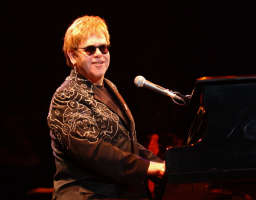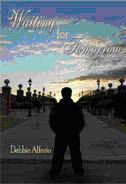I love public speaking--now, that is. I used to hate it. In fact, in years past, just the very thought of speaking in front of a group would put me into such a state of panic that I would almost become physically ill. Now when I look back on those days, believe it or not, I can't for the life of me understand why I ever felt that way. Public speaking engagements carry so many positives for an author that you can't afford not to do them, at least once in a while. But what if you, too, find yourself shaking, sweating, and stammering when placed behind a podium? Maybe these tips can help:
- Know Your Topic: Nothing causes a presentation to take a nose dive faster than a speaker who doesn't have knowledge of his topic. I don't recommend speaking on any subject you don't have personal experience with or aren't willing to thoroughly learn or research. Sticking to what you know has its benefits, and you'll be less flustered if the presentation goes off-course a little.
- Practice Makes Perfect: Practice your presentation in front of friends and family, allowing them to provide honest feedback. Does your voice trail off at the end of a sentence? Do you make adequate eye contact? Do you speak clearly? Does your presentation cover interesting points or does it ramble on endlessly? Use the feedback you get to improve the areas that need improving and strenghten your overall performance.
- Timing is Everything: Inexperienced or nervous speakers tend to either cut their presentations short or go over the time allotted. Be sure you know exactly how much time you're expected to fill, and time your speech to stay within the limits. I personally write my presentations to allow for at least 10-15 minutes of question and answer time at the end, or a writing activity--whichever is appropriate for the event.
- Stay On Topic: Many times a speaker gets a question or a comment from the audience and veers completely away from the original topic. If this happens, go ahead and address it, but don't spend too much time away from the subject. Gently guide everyone back to what they came to hear and learn. Always keep in mind that you're on a schedule.
- Relax and Have Fun: Don't approach your presentation like a stuffy college professor. Relax and enjoy your crowd. Smile, make eye contact, and be animated if that's your personality. Keep the audience interested by speaking in a conversational way, avoiding a monotone that's sure to bore everyone there.
Remember, speaking engagements are a great way for you to reach out to those who may be interested in reading your book and/or becoming writers themselves. Don't be afraid to get out there and do it--the more you do, the more comfortable and experienced you'll become. Happy writing--and speaking!
*Photo courtesy of Google Images
*Photo courtesy of Google Images



